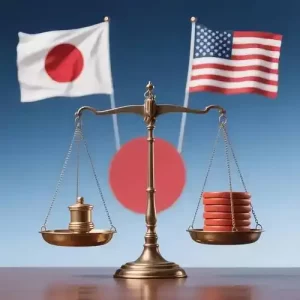
Following the latest tariff rates announced last week by U.S. President Trump, major Asian apparel exporting countries such as Vietnam, Cambodia, Bangladesh, and India will face tariffs ranging from 19% to 25%. According to the Nikkei Asian Review, affected companies, from Japan’s Fast Retailing Co., Ltd. (Uniqlo’s parent company) to Germany’s Adidas Group—all heavily reliant on Asian apparel production bases—are being forced to consider raising prices of their goods in the U.S. market. Data released by the U.S. International Trade Commission in the latter half of last year shows that the total value of U.S. apparel imports in 2023 reached $79.3 billion. Of this, Vietnam accounted for 18% of U.S. apparel imports, Bangladesh 9%, and India 6%.
Vietnam is the largest producer of Adidas goods sold in the United States. President Trump imposed a 20% tariff on imports from Vietnam. Adidas CEO Kasper Rorsted acknowledged last week that the tariffs have already negatively impacted the company by tens of millions of euros and will increase the cost of Adidas goods sold in the by €200 million for the remainder of the year.
As of the end of May this year, Fast Retailing operated 74 stores in the United States. Of Fast Retailing’s 380 sourcing factories, 60 are located in Vietnam, 27 in Bangladesh, and 19 in Cambodia. Fast Retailing’s Chief Financial Officer, Ken Okazaki, recently revealed that the company will make “flexible adjustments” to prices, considering the impact of tariffs. Previously, Fast Retailing had stockpiled goods in anticipation of tariffs imposed by the Trump administration, but its autumn and winter goods will certainly face higher tariffs. A company source frankly stated, “We have no choice but to raise prices.”
Nike manufactures 50% of its footwear in Vietnam and 27% in Indonesia. In June, Nike stated that US tariffs would increase its costs by US$1 billion. Clothing retailer GAP also indicated that tariffs could add US$250 million to US$300 million to its costs. In late July, German sportswear company Puma revealed that tariffs would shift its performance from the previously projected profit to a loss. Puma estimates that tariffs will increase its costs by €80 million.
The Nikkei Asian Review believes these brands may have no choice but to raise prices in the US market. In June, Nike announced it would begin raising prices on goods sold in the US market to offset the impact of tariffs. Swedish fast-fashion brand H&M has also indicated it is considering price increases in the US market.
Press Trust of India reported on the 3rd that India’s Textiles Minister, Piyush Goyal, will meet with industry representatives to analyze the impact of the 25% US import tariff on India’s textile industry. The United States is the largest export market for Indian clothing and textiles, accounting for one-fourth of India’s total exports in this sector. Previously, India had set a target of boosting textile exports to US$100 billion by 2030.
Beyond the aforementioned 25% tariff, some Indian industry insiders are also apprehensive about the possibility of the United States imposing so-called “punitive tariffs” on India for importing Russian oil. Currently, India’s tariff rates are already higher than those of its textile export competitors such as Vietnam, Indonesia, and Bangladesh.
Bangladesh, a neighbor of India, is heavily reliant on textile exports. According to the Nikkei Asian Review, textiles, including garments, account for over 90% of the country’s total exports, with the United States being its largest export market. A report released in late July by the Bangladesh-based think tank, the Center for Policy Dialogue, indicates that over 100 Bangladeshi ready-made garment (RMG) factories are entirely dependent on the US market, while approximately 300 others export more than half of their goods to the United States. The Center believes that in the face of US tariffs, Bangladeshi businesses will increase their exports to the European Union. Some Bangladeshi companies have stated that they are already exploring other markets, including Australia and Japan. Asfor Ibrasin, the head of a garment factory, stated that in response to the Trump administration’s trade policies, the Bangladeshi garment industry must undertake a comprehensive review. He added that “by adopting the right strategies, Bangladesh has the capacity to transform challenges into drivers of change.”